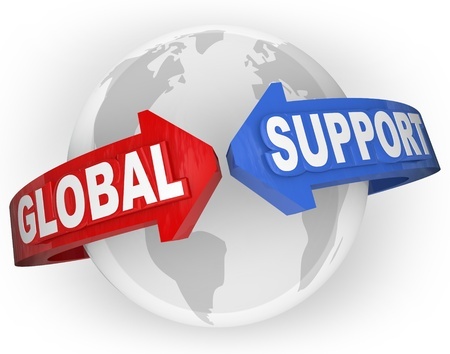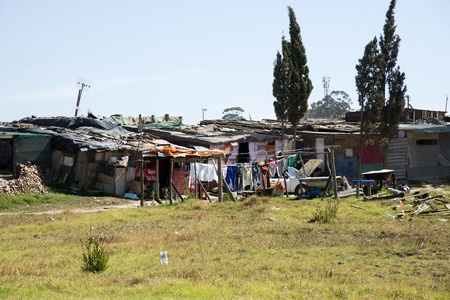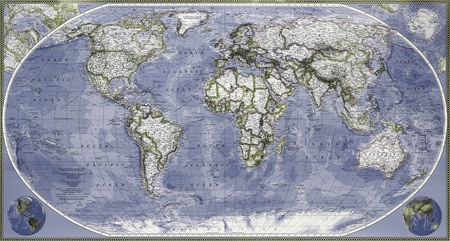Introduction: a word, misunderstandings
The notion of sharing of wealth is often reduced to its economic dimension: redistribution of capital, remuneration of labor, or balance between production factors. However, this approach, dominant since the 18th century, is no longer sufficient to account for contemporary issues. Because wealth is not limited to purchasing power, and sharing cannot be limited to monetary redistribution carried out by the State.
In a world experiencing economic, social, ecological and cultural crises, it is urgent to redefine what we mean by wealth, And who must ensure its sharing – individuals, collectives, or institutions? This article aims to contribute to this reflection.
From sharing to redistribution: a historical confusion
The weight of the State and the industrial heritage
In France, the notion of sharing is often confused with redistribution provided by the State. A legacy of the industrial revolutions and labor movements, this redistribution aimed to limit the most glaring inequalities and maintain social order. Wage labor – based on a relationship of subordination – established itself as the pillar of this model, with a binary vision: the capitalist boss versus the exploited employee.
But this pattern no longer corresponds to today's reality. The social structure has become more complex, the ideological boundaries between right and left have blurred, and the middle class has fragmented. Moreover, new actors—associations, mutual societies, social and solidarity economy structures—are intervening in sectors previously reserved for the state.
A shared responsibility
Sharing cannot be delegated solely to the State. It also implies a individual responsibility. Between personal choices and collective obligations, the question arises of values that form the basis of our social cohesionSharing is not only a matter of constraint, but also of voluntary, ethical and civic commitment.
What wealth are we talking about?
Beyond economic wealth
Wealth, according to the liberal tradition initiated by Adam Smith, is linked to production, consumption, and growth. But this model has shown its limitations. Crises—financial, environmental, and health—reveal the extent to which a strictly economic approach is insufficient.
According to Wikipedia, wealth is “the state of being able to satisfy all one’s needs from one’s resources.” This link between resources And needs constitutes an essential key to understanding.
Basic needs and overall well-being
Since 1990, theHuman Development Index (HDI) completes the economic indicators by integrating three dimensions:
Health / Longevity, measured by life expectancy;
Education, measured by the literacy and school enrollment rate;
The standard of living, measured by gross national income per capita.
OECD countries add to this theexclusion, via the long-term unemployment rate.
Wealth thus becomes plural: it includes social infrastructure, cultural opportunities, quality of life, food security, access to information... It cannot be reduced to the performance of companies alone.
Who should organize the sharing?
Levels of organization
Globalization raises a major question: should sharing be organized at the local, national, European, or international level? In France, should it be entrusted to the state, individuals, local authorities, or civil society?
The growing role of civil society
L'social and solidarity economy – associations, mutual societies, cooperatives – occupies a growing place. But it remains faced with a dilemma: reconciling ethics of sharing And financial balanceThese structures, sometimes assimilated to traditional companies, raise the question of a profitable sharing : can we share without sacrificing values?
What to share today?
Three forms of wealth to share
Material goods : income, housing, food, etc.
Intangible assets : education, health, access to information, culture.
The results of economic value creation, via employment, taxation or collective investments.
But there is also an often overlooked wealth: the shared culture, social ties, living together, intergenerational and intercultural meeting places.
Towards a society of well-being
The wealth of France does not lie only in its businesses, but in its quality of life : sustainable agriculture, SMEs rooted in the regions, an education system to rethink, a natural and cultural heritage to promote.
Conclusion: rethinking wealth to rebuild sharing
Before talking about sharing, we must redefine wealth. It is no longer the quantity of goods possessed, but the ability to live well togetherThe goal is no longer just growth, but the well-being, or even the shared happiness.
France has the means to rethink its model, provided it undertakes a double transformation:
Civic : encourage individual responsibility, particularly through voluntary engagement (as in the United States, where volunteering is valued from high school onwards).
Policy : direct public policies towards basic needs : health, education, housing, culture, social ties.
The wealth of tomorrow will not only be monetary. It will be ecological, social, relational and culturalThe challenge is immense, but France has a unique role to play – in Europe and internationally – in inventing a society of enlightened sharing.



